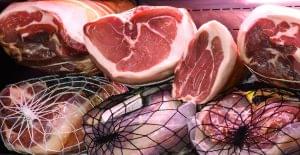Szijjártó: self-sufficiency in the food industry requires continuous capacity-building investments
Self-sufficiency in the food industry requires continuous capacity expansions, and this is also important because as many investments as possible must be made in order for Hungary to be a local exception to the European recession, Minister of Foreign Affairs and Trade Péter Szijjártó announced on Friday in Csurgó.

(Photo: Pixabay)
According to the announcement of the Ministry of Foreign Affairs and Trade, the head of the department participated in the handover of the investment of the meat processing company Topesa Kft., where he reported that the state supported the HUF 1.6 billion capacity expansion with HUF 287 million, thus contributing to the preservation of seventy jobs. In his speech, he pointed out that the world is facing the most serious and complex security risks since the Second World War. As he said, among other things, global food security was also at risk, as many countries depend heavily on Ukrainian and Russian grain supplies. According to his words, in peacetime Ukraine alone depends on the supply of about 400 million people, so as a result of exports being largely impossible, so many people may be in danger, basically in the Middle East, Africa and Southeast Asia. – The safety of the food supply has never been more obviously critical than it is now. – he said. Péter Szijjártó stated that they see the food industry as a strategic sector, and its effective operation is treated as a matter of national security. – Of course, the goal, task and duty of the government is to guarantee the prerequisites for the Hungarian agriculture and food industry to efficiently and safely supply Hungary with healthy food in the long term. – he pointed out, and then added that the sector’s resilience to crises has unfortunately been proven several times in recent years, but even after the disruption of boarding chains due to the coronavirus epidemic, no supply disruptions occurred in our country.
The minister emphasized that last year, despite the crisis, a huge record was achieved
The production value of the Hungarian food industry exceeded HUF 4,400 billion with an increase of 17 percent, and its volume increased by 46 percent this year and reached HUF 4,000 billion by August, so another summit decision is being prepared. He underlined: the value of food industry exports exceeded ten billion euros last year with an 11 percent increase, and although Hungary is only 95th in the world in terms of population, it ranks 32nd in terms of food exports, Hungarian products are bought in 163 countries around the world.
One of the most important domestic products is pork
In Hungary, in the last ten years, the per capita consumption has increased by five kilograms per year, reaching thirty kilograms. This means that Hungary is more or less self-sufficient in terms of pork, but it is also important that the processing companies can operate with adequate capacity, and the current investment is also important from this point of view – he informed and stated that continuous capacity expansion is necessary, and for this, new for investments, which is also crucial in order to avoid a European recession.
MTI
Related news
KSH: The volume of exports of food, beverages and tobacco decreased by 5.7 percent, while imports decreased by 13 percent
🎧 Hallgasd a cikket: Lejátszás Szünet Folytatás Leállítás Nyelv: Auto…
Read more >Related news
Will AI tell us what we can buy in stores and for how much?
🎧 Hallgasd a cikket: Lejátszás Szünet Folytatás Leállítás Nyelv: Auto…
Read more >Important legislative changes: certain consumer rights now extend to SMEs
🎧 Hallgasd a cikket: Lejátszás Szünet Folytatás Leállítás Nyelv: Auto…
Read more >AM: focus on the role and protection of medicinal plants
🎧 Hallgasd a cikket: Lejátszás Szünet Folytatás Leállítás Nyelv: Auto…
Read more >








